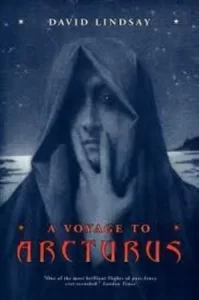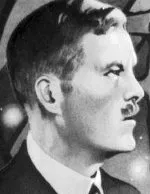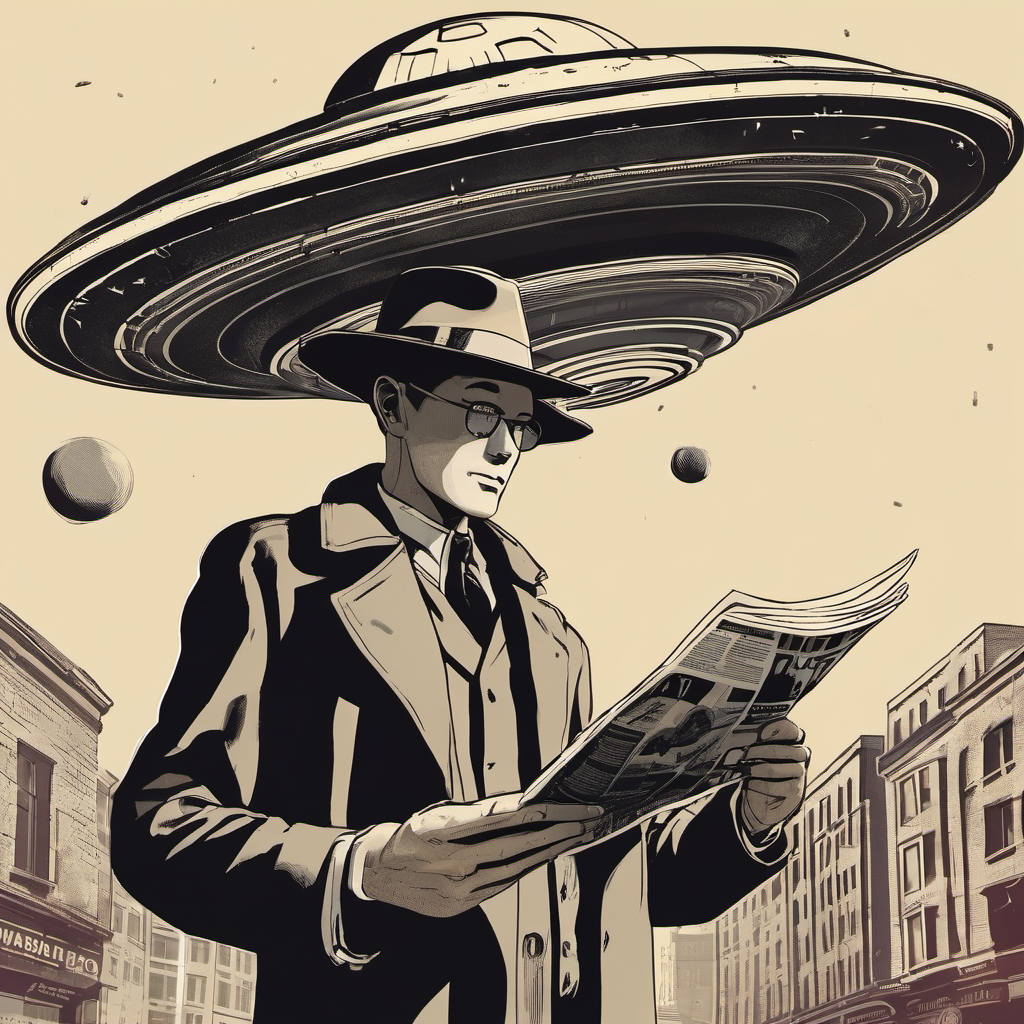 By KEN KORCZAK
By KEN KORCZAK
The masterpiece of esoteric literature that ruined the career of a brilliant Scotts-British writer but inspired and influenced J.R.R. Tolkien. C.S. Lewis.
Novelist David Lindsay died a desperately unhappy man in 1945 living on the edge of poverty — despite having penned arguably the greatest underground novel of the 20th Century — A Voyage to Arcturus.
None other than J.R.R. Tolkien considered David Lindsay his “biggest literary influence.” The Scottish-English writer was ardently admired by the literary intelligentsia of Britain and Europe, including Tolkien’s colleague C.S. Lewis.
The noted American science fiction editor and scholar Gary K. Wolfe said A Voyage to Arcturus “is surely among the most remarkable works of philosophical fiction of the twentieth century.”
I agree!
But Lindsay’s uncanny masterpiece landed with a thud among the reading audiences of the day. It was published in 1920, and it sold less than 500 copies. That pegged him as a pariah among publishers, a bad risk, and sentenced him to a literary lifetime of obscurity and frustration.
Lindsay wrote another half-dozen books, all of which tanked financially. To survive financially, this brilliant literary mind toiled away at such jobs as insurance broker and running a low-rent boarding house. He died a miserable death brought on by rotting teeth that may have turned cancerous.

Today, A Voyage to Arcturus still doesn’t generate a dime because anyone can download it for free from the Internet. Yet, this book has been named to any number of the “The 100 Novels You Must Read” lists.
It’s a work of singular genius. Imagine “Lord of the Rings” meets “Ulysses” or perhaps the “Odyssey” meets “The Lazy Man’s Guide to Enlightenment.” Reading it is like taking peyote while sitting in Zen meditation. (Full disclosure: I have never tried peyote).
The book involves the journey of a man by the name of Maskull who attends a typical early 20th Century-style séance which turns out to be not so typical. At the séance, he meets two mysterious men, Krag and Nightspore, who invite him on a journey to another planet in a far-away star system.
The planet is Tormance which orbits the star Arcturus. On Tormance, Maskull embarks on a dream-like journey through the deep reaches and layers of his psyche, but also through the fundamental nature of reality and consciousness.
Sounds pretty deep, doesn’t it? And so it is!
I’ll warn you; this is not an easy read. It is never predictable. However, unlike such works as, say, Finnegans Wake, it’s not a mishmash of Avant Garde literary esoterica. I think it’s far more accessible than the likes of Ulysses, the miserable Gravity’s Rainbow by Thomas Pynchon, or that 800-page torture session, The Magic Mountain, by Thomas Mann.
A Voyage to Arcturus maintains a coherent structure while leveraging a transcendental narrative that both makes (a certain kind of) sense and keeps you rocked off base at the same time. In his analysis of Voyage to Arcturus, C.S. Lewis writes:
“In each chapter, we think we have found his final position; each time we are utterly mistaken. He builds whole worlds of imagery and passion, any one of which would have served another writer for a whole book, only to pull each of them to pieces and pour scorn on it.” — From “On Stories”, in On Stories and Other Essays on Literature, p. 11
It’s interesting to note that C.S. Lewis despised the philosophic ideas presented in ‘Voyage’ considering them “diabolical” and “Manichean as to be almost Satanic.”
And yet, the super Christian Lewis still opted to base his character “Tinidril” from his novel, “Perelandra” after Lindsay’s character, “Lona.” Furthermore, although Lewis stated that he “detested Lindsay’s philosophy,” he later admitted that ‘Voyage” was the inspiration for his famous Space Trilogy. I find it also fascinating that the Space Trilogy was later released with the title, “A Voyage to Venus.” Hmm. Just a coincidence, I’m sure.
This is a book that is not designed to make you comfortable while it transports you through a sense of wonderment. It’s not airy-fairy, New Agey feel-good fair.
It’s better than that!
And yes! — Voyage to Arcturus was made into a movie!
However, this was hardly the glamorous Hollywood treatment. Rather, the cinematic version is a grindingly low-budget vehicle produced and directed in 1970 by then film student William Holloway. Filmed in 35 mm, it was released in 16mm by Brandon Films and circulated on the art school circuit in 1970 and 1971. The amateur actors were recruited from the students and faculty of Antioch College.
Now the good news: You can watch this film right now for free on YouTube! Click here and be prepared to enjoy! VOYAGE FILM
Now … For an example of the powerful effect reading the book can have on readers, I suggest you check out the priceless reaction and comments of book reviewer “Paperback Junkie” Matt Wall. Click here: MATT WALL
Hint: Matt Wall in his review issues these phrases after reading ‘Voyage’: “I felt like I was brain raped!” and “I lost my brain!” and “I need help!”
If you want to enjoy an edifying discussion of the book by four lively intellectuals, I strongly suggest you check out this YouTube video: Celebrating the Centenary of ‘A Voyage to Arcturus’
I’ll close by saying that A Voyage to Arcturus is a masterpiece that will jolt you out of your comfort zone. It’s a book that can force you to look inside yourself for a frank inspection of what you might not want to see, but maybe you need to see.
No wonder it sold less than 500 copies — yet amazingly has been read by millions of people since.
NOTE: For more book reviews of rare or forgotten books, please see: KEN-ON-MEDIUM.
